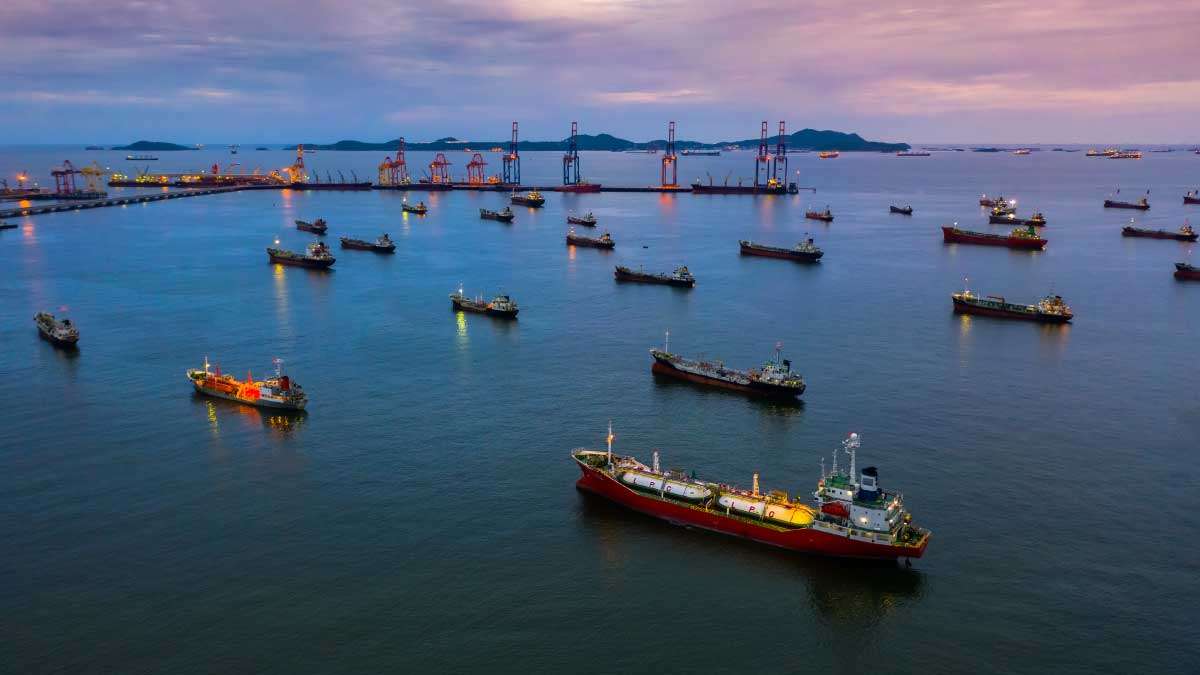
Maritime Pollution
The vast and fascinating waters of the world are not free from the consequences of human activity, notably the environmental cost of marine pollution. The shipping industry, which serves as the backbone of global trade, enables the transportation of products between continents. But there is a significant environmental cost to this. These ships run on traditional marine fuels, which are a major source of pollution across the globe and contribute to regional and global environmental issues.
Conventional Shipping Fuels
Due to the high carbon content of conventional shipping fuels like heavy fuel oil and marine diesel, the shipping sector is one of the major emitters of greenhouse gases into the atmosphere. Carbon dioxide, a greenhouse gas that traps heat in the earth’s atmosphere and contributes to climate change and global warming, is released in huge quantities during the burning of these fuels. Because of its dependence on fossil fuels, the marine sector has come under increased scrutiny as countries and organizations work to minimize their carbon footprints and lessen the effects of climate change.
Sulfur Oxides and Nitrogen Oxides
In addition to carbon dioxide, burning conventional marine fuels releases nitrogen oxides (NOx) and sulfur oxides (SOx), two hazardous gases that are very detrimental to human health and the environment. Acid rain, a result of SOx emissions, degrades structures and monuments and harms aquatic life, agriculture, and forests. On the other side, NOx is involved in the production of tropospheric ozone, a hazardous air pollutant, as well as smog and acid rain. Both emissions have detrimental effects on human health, such as increased risk of heart disease and respiratory issues.
Impact of Maritime Emissions on Climate and Health
The consequences of marine emissions on the environment and human health are extensive. Rising sea levels, more severe weather, and a decline in biodiversity are all results of climate change, which is caused by increasing GHG emissions. Increased rates of respiratory and cardiovascular disorders are among the negative health effects of ship-related air pollution, especially in coastal and port towns. The emissions from the marine sector have a knock-on impact that exacerbates climate change and puts millions of people’s health at risk globally.
Sustainable Marine Fuel Alternatives
Sustainable marine fuel options are being explored in the shipping sector in response to these environmental issues. To lessen the environmental effect of the marine sector, technologies like electric propulsion systems, biofuels, LNG (liquefied natural gas), and hydrogen fuel cells are being researched and tested. As a major step towards greener shipping operations, these solutions offer to cut or eliminate SOx and NOx emissions in addition to lowering GHG emissions.
Emerging Trends in Green Shipping
The marine sector has been at the forefront of technological advancements due to the demand for sustainability. To ensure a more environmentally friendly future for shipping, companies are making investments in new fuel types and technology. Several developments are taking place in this industry to lessen its impact on the environment, including solar and wind-powered ships and advanced scrubber systems that lower SOx emissions. Not only do these new trends represent a greater dedication to environmental protection, but they also indicate a change in the way things are moved across the world’s seas.
The vast oceans, teeming with wonder and mystery, bear witness to the consequences of human activity. Among these, marine pollution stands out as a significant environmental cost. As the global shipping industry propels trade across continents, it relies heavily on traditional marine fuels.
